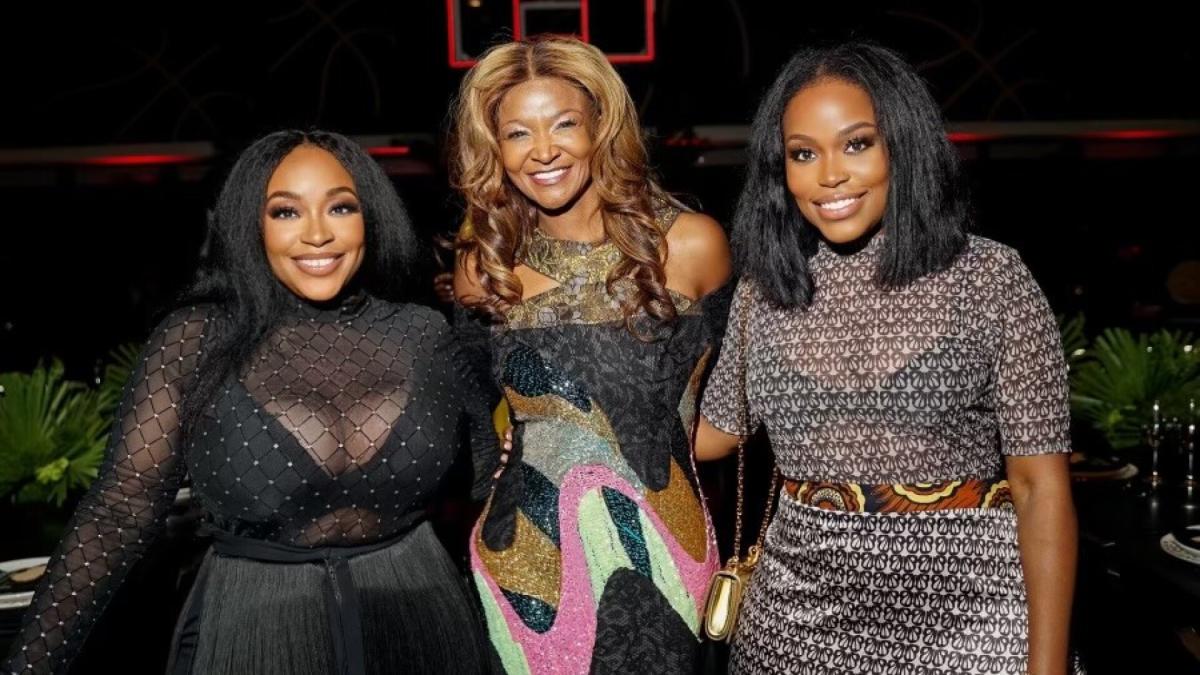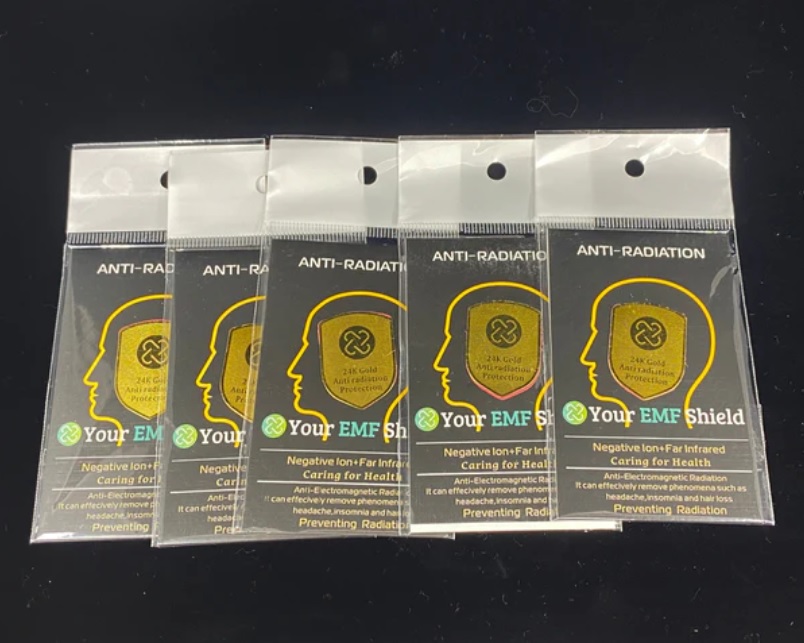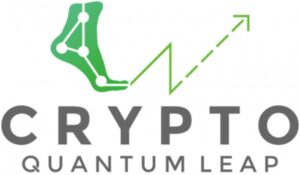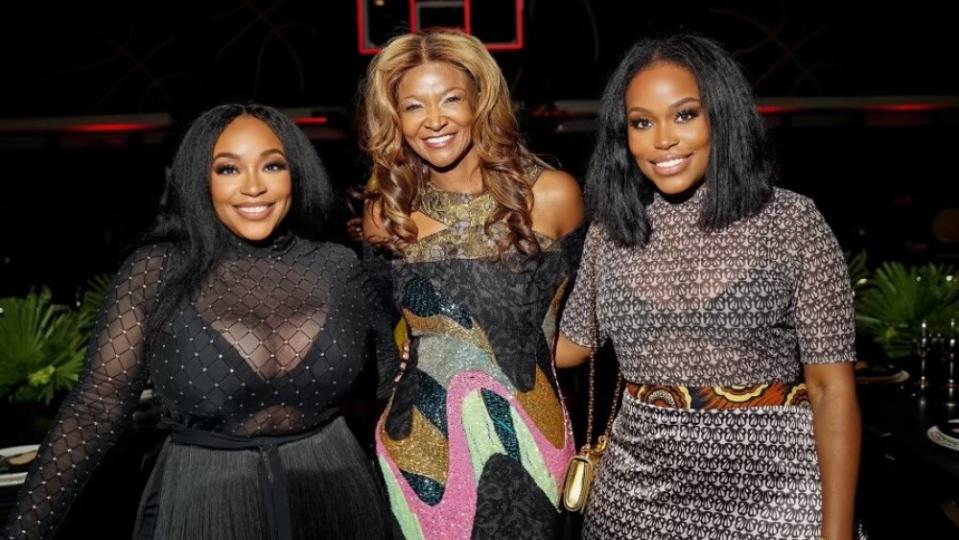
While Heads of State and Government gathered in New York City for the 78th session of the United Nations General Assembly, the National Basketball Players Association (NBPA) and “Dope Africans” partnered to host an event that would bring policymakers, business leaders, and NBA players of the past and present, to the same table where they partook in traditional African dishes like Jollof rice and fufu and soup.
They may not have been able to come to an agreement about which African country makes the best Jollof rice (Nigeria), but some of the world’s most influential leaders were united in discussing ways to be a catalyst for change across the continent of Africa.
“It’s really about changing the narrative, and moving from charity, and equitable partnerships to true sustainable impacts at the hands of African leaders in African managed efforts,” said Lyzz Ogunwo, the Vice President of International Development and Global Impact at NBPA. “The players are leveraging their platform, their interests, and their passions to really advance economic development for their countries where they’re from.”
Some of the current and former NBA players in attendance included Bismack Biyombo, Victor Oladipo, Precious Achiuwa, Bruno Fernando, Joakim Noah, Gorgui Dieng, Luc Mbah a Moute, Luol Deng, and Pops Mensah-Bonsu.
While Ogunwo, NBPA Executive Director Tamika Tremaglio, and many others worked tirelessly to bring this event to fruition, the two sisters at the forefront of it all were Massah David and Miatta Johnson. The siblings created “Dope Africans” in 2019 to cultivate creative community and celebrate African culture and excellence across the diaspora.
From looking at their impressive resumes, one would have never guessed that Miatta and Massah started their journeys in the U.S. as political asylum refugees from Liberia.
Massah David and Miatta Johnson opened up about their experience growing up in a Liberian household, the inspiration behind “Dope Africans”, and how they hope to make an impact in the sports industry below.
*This interview has been edited for length and clarity.
You guys have such a remarkable story. Your family was involved in government during the Liberian coup in 1980. How old were you both when you moved to the U.S?
Massah David: I was four.
Miatta Johnson: I was seven.
I understand that some of these things may be traumatic to talk about but for the people that don’t know what it’s like, can you describe what it’s like to come to this country seeking political asylum? What do you remember feeling during that time?
Johnson: Massah was a baby, so she doesn’t remember a lot but I remember feeling very isolated. When we left, my sister and my mom, they stayed back, because we didn’t get political asylum for the whole family at first. I came with my two brothers and my dad. Imagine a seven-year-old [girl] with all boys in a new country.
All I remember is seeing our dad, who was the mayor of Monrovia, Liberia, go from that to selling shoes because he was like, “I’m going to do whatever I need to do to feed my family.” It’s a testament to doing what you need to do when you want to survive and it’s a testament to resilience. I didn’t even realize what I was experiencing and what I was watching [when I was younger], but I had the understanding that you can come back from anything.
What was it like growing up in a Liberian household? How did it develop your work ethic?
David: It really taught us that you can have whatever you want, as long as you work hard for it. We grew up in a house where you dream without limits. We didn’t understand not being able to have what you want, if you just go out and get it. That was our perspective and the way that we grew up. Our father was a very hard worker, our mother was a very hard worker. They both came from their positions in government in Liberia and had to take a few steps down [in their working professions] in the U.S. to take care of us.
They really instilled that we needed to be honest and hard working people in order to do whatever we needed to do to pursue our dreams. Our parents told us “You belong in every room. Don’t ever cower or dumb yourselves down in any space, because you belong there, and you’re good enough.”
Johnson: They also taught us that family is paramount. When we came to America, we stayed with family when we didn’t have anything. We understood how that was so important to be able to support each other and support ourselves. Family comes before everything and integrity is everything.
How did these experiences lead to the creation of “Dope Africans” and what is your vision for this initiative?
Johnson: It was really a sense of community and celebrating our duality. We created “Dope Africans” because in certain spaces, we weren’t “African enough”, yet in other spaces we’re “too African.” We felt that there is this whole community of first-generation Africans that were here who may hear about [their home country] and still eat [food from their home country] but they have to still function in this space—Africans who have various interests and are multi-generational and multi-layered. Seeing and understanding that, that space was needed was why we created “Dope Africans”. We wanted community.
As a first-generation Nigerian-American myself, I know that growing up it wasn’t “cool” to be African. Now people are appreciating African culture and you guys are helping to change that narrative. What does that mean to you? How do you think having something like this when you were growing up would have helped you?
David: I think it would have given us a sense of belonging. With our family, they gave us that sense automatically, in telling us that we belong in every room, but it would have made us feel more welcome. With “Dope Africans,” that’s something that’s really important to us—making everyone feel like they have that safe space where they can celebrate their culture.
They can celebrate who they are and they don’t have to feel like they have to conform and change themselves into someone that they may not be or put on a hat that they might not want to wear. You might just want to rep your country and eat fufu and soup and not apologize for it.
That was really important for us with “Dope Africans”. Making sure that everyone connected and felt proud of where they came from—like seeing your distant cousin, whether they’re from Nigeria, Cameroon, or South Africa—we’re all connected, and we need to start moving and operating in that way to harness our power.
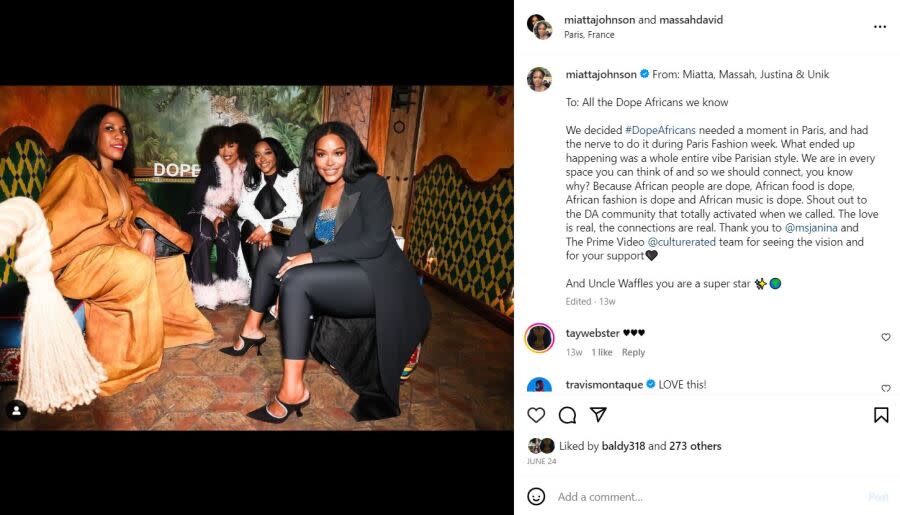
I love that! You guys took over Paris Fashion Week this summer, you’ve touched the music industry, and now you’re infiltrating the NBA. What impact do you want “Dope Africans” to have in the sports industry?
Johnson: We want it to be a community because when you have a community, you really are unstoppable. I was having some conversations with some of the players and one gentleman flew in just for our event tonight, knowing that he had to go back tomorrow morning for his practice.
He said that this is something that hasn’t been done, and to be able to hang out with “his people” and just understand that this is a safe space was something that he was not going to miss. That was all I needed to hear and what we wanted was to create this space to celebrate each other.
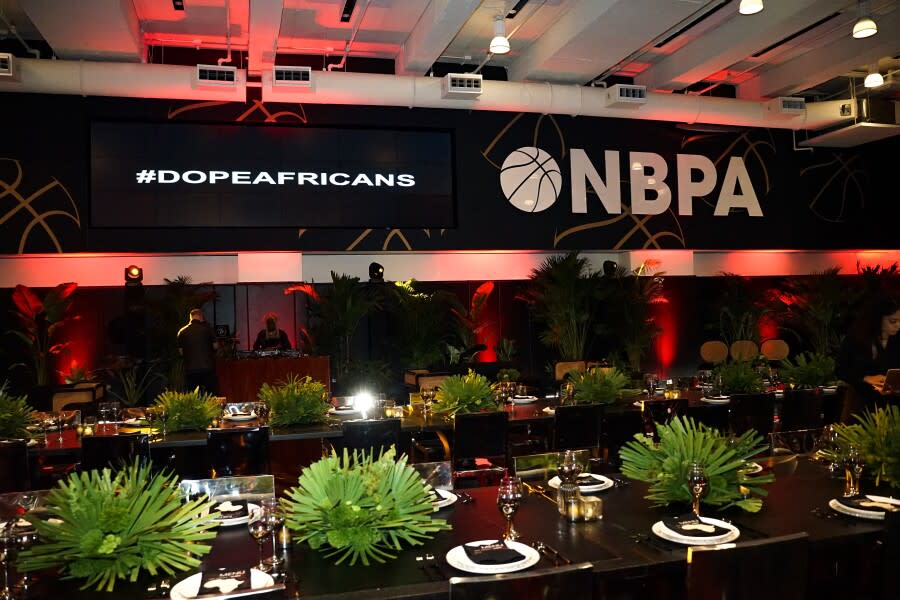
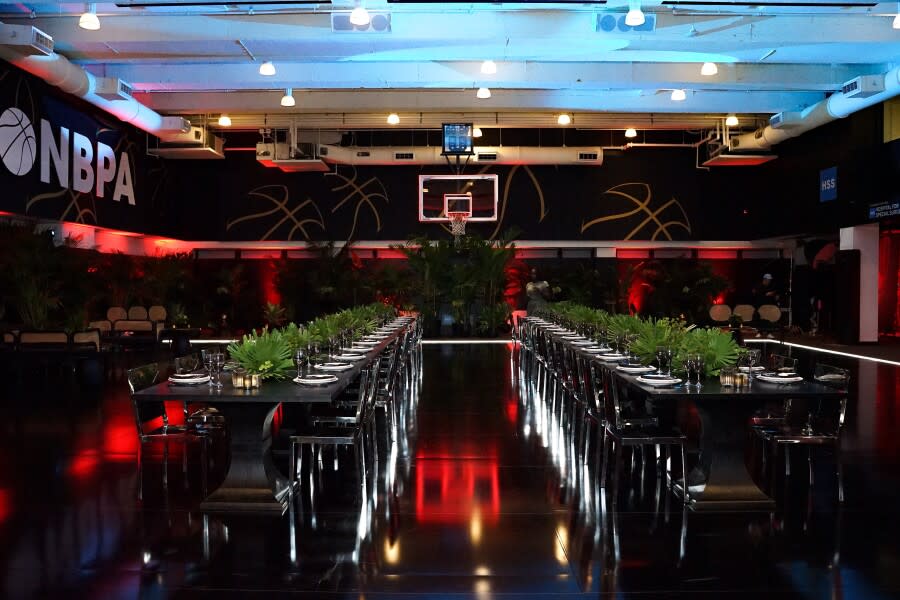
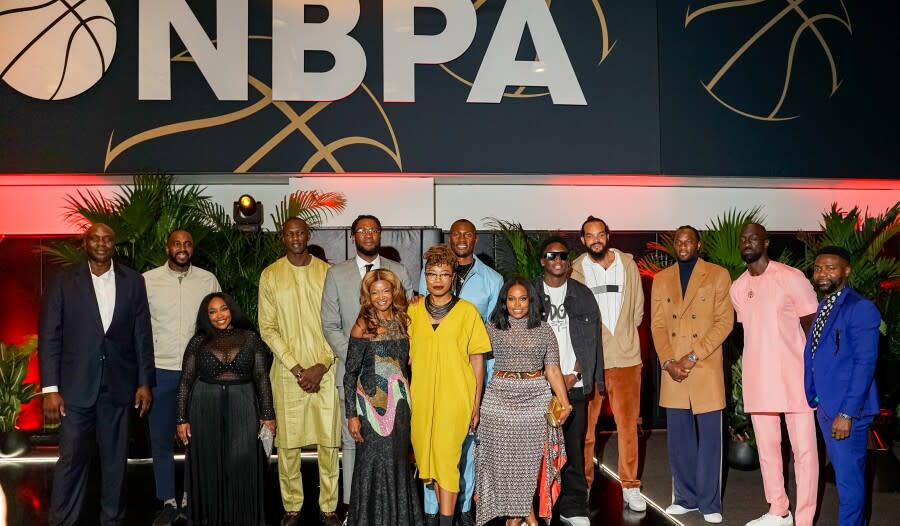
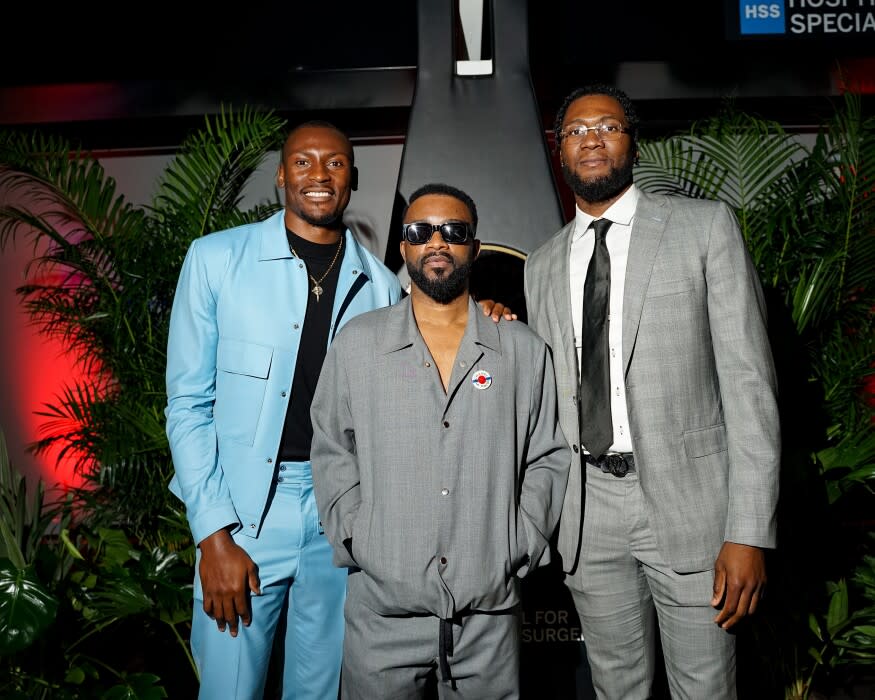
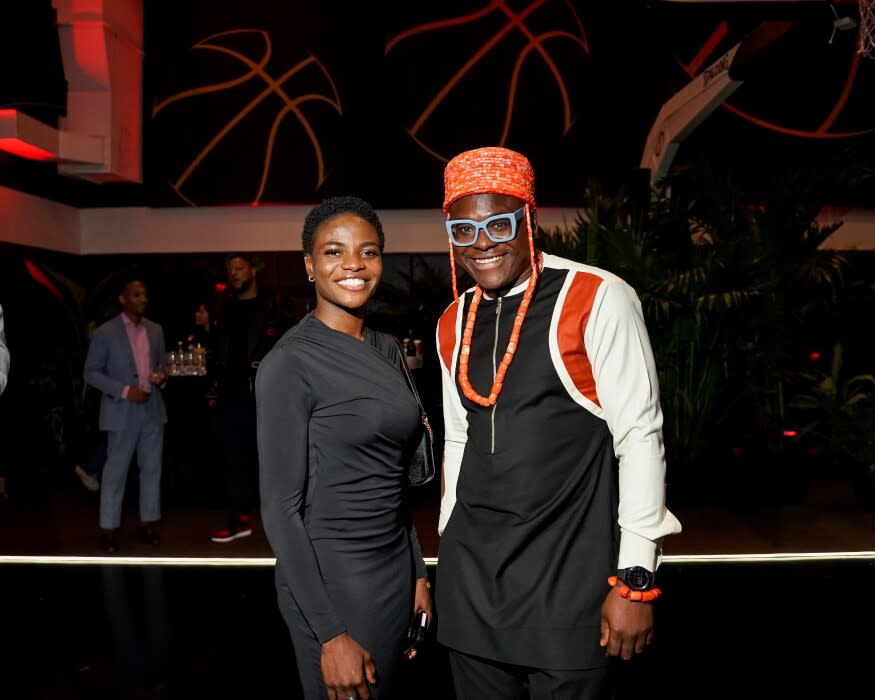
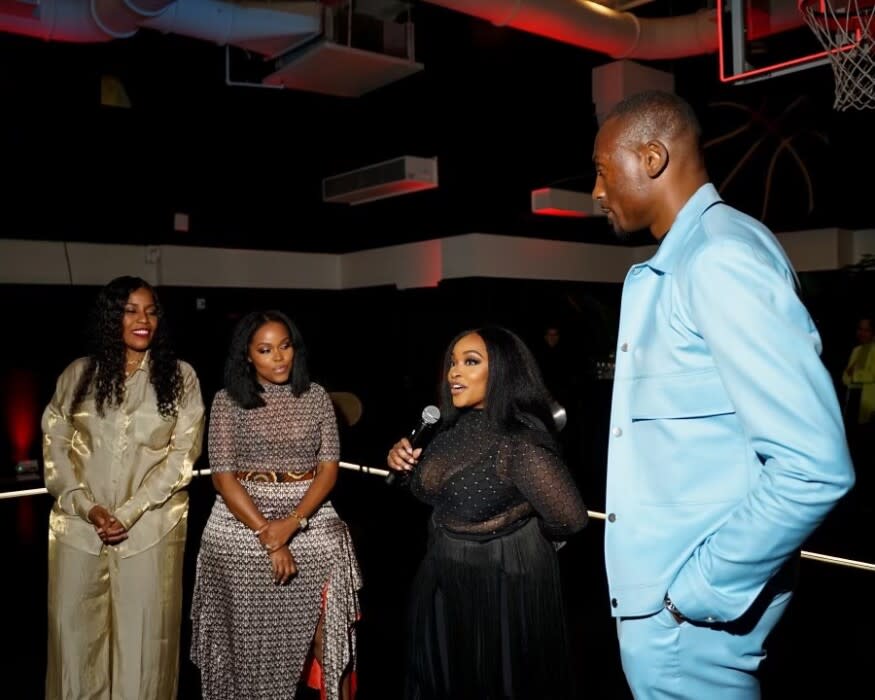
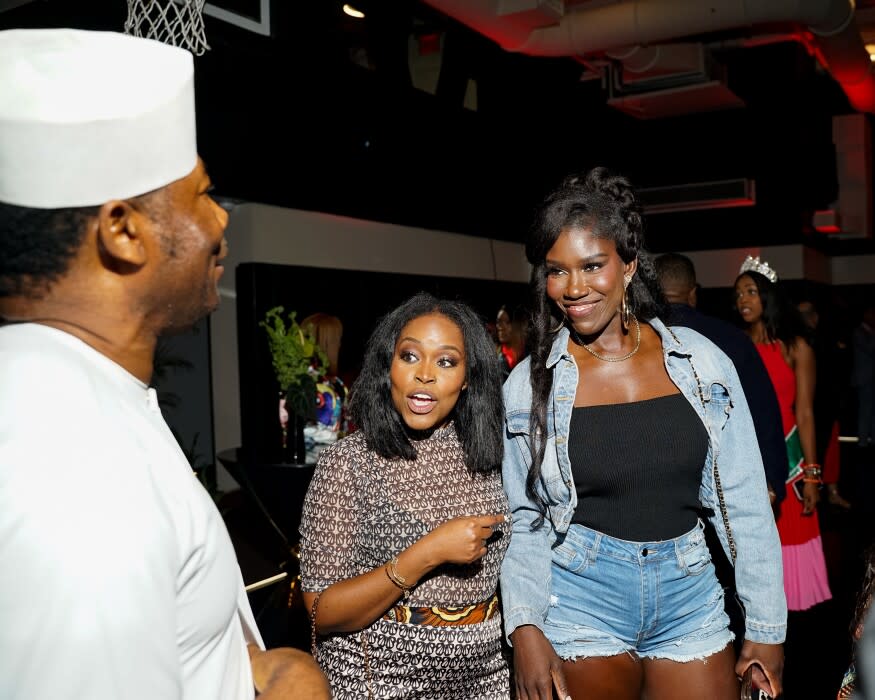
When I hear your story, it’s incredible to know that there’s so much power in the ability to change your life and not be limited by your circumstances. You guys have had to pivot through so many different seasons of life. From being political refugees, to carving your own path to get your foot in the door in the industry, and now being creators and innovators. What does that mean to you?
David: To be honest, we’re very humble. Sometimes it takes a second for us to wrap our heads around what we’ve accomplished. It’s humbling, it makes you grateful, because I know that there’s so many people that wish that they had this opportunity, and we’re God-fearing people. We know that it’s only because of God that we’re here, honestly. It’s our mom’s prayers, and our father’s prayers, and our grandmothers prayers… only God.
One of your mantras is “don’t let the industry change you, you change the industry.” Can you talk about that and any advice you have for anyone that’s trying to break through right now?
Johnson: People think they have to be a certain way or that they don’t have to be kind because “the good guys never win.” That’s a lie. All of your trials and tribulations have led you to this space and this moment. When I think back to when I used to be a writer at Dow Jones, what I learned then, helped me in this space. Everything and every part of your journey is going to lead you to your destiny. I wish somebody would have told me that when I was younger. I don’t believe in circumstances and once you understand that and know that there are no coincidences, then you look at things a little differently.
Can you talk about the challenges you face as Black women in the media industry? You’ve talked in the past about having to “demand that you’re supposed to be here”.
Johnson: And we still are. You’re constantly proving yourself even if you don’t want to, because we are not the majority. When you’re not the majority and this structure was not built for you, you’re constantly understanding and knowing that you have to move differently. It’s still difficult. People think okay, I know you guys have gotten to a certain level but even with this level, we’re still fighting.
David: It’s a constant battle.
Johnson: Whether it’s “you guys don’t deserve this budget”, or “you guys don’t deserve to be in this space or we don’t think that you guys should demand certain things because you’re Black women.” But we know that we’re doing it because we want the younger, little Miattas and Massahs, whether you’re in Nigeria or Ivory Coast, to know that anything is possible.
David: Something that’s really important for people to understand is, regardless of any level you get to, you will always have to prove yourself. People have to let go of that idea or feeling like they are past it. People will always question you but that doesn’t negate what you’ve accomplished. You have to get to a point where you know who you are and you’re entering a room knowing you’re demanding what you deserve.
I love that! You’ve created a very successful creative agency, MVD inc., you’re doing incredible work with Dope Africans, what’s next on your list?
David: Taking over the world. We have big dreams. I don’t know what’s next. Honestly, we’ve had our eye on the film industry for a while because we’re very big on telling our own narrative and that’s something that we haven’t tapped into yet.
Switching gears, I want to talk about the Olympics. What comes to mind when you think of African countries and the Games in general?
David: We should be part of the conversation in a serious way.
Johnson: Yes, and respected!
The Olympics have never been hosted by an African country. Do you think that’s something we’ll see in our lifetime? What needs to change?
Johnson: Absolutely, because I didn’t think that in my lifetime, I would now go to parties that are not African based and hear Afrobeats on the radio or Amapiano in the clubs and now they have a category in the Grammys where it’s going to be African music. I never thought I was going to see that. It’s absolutely possible and we’re going to see it because we’re going to help change that.
